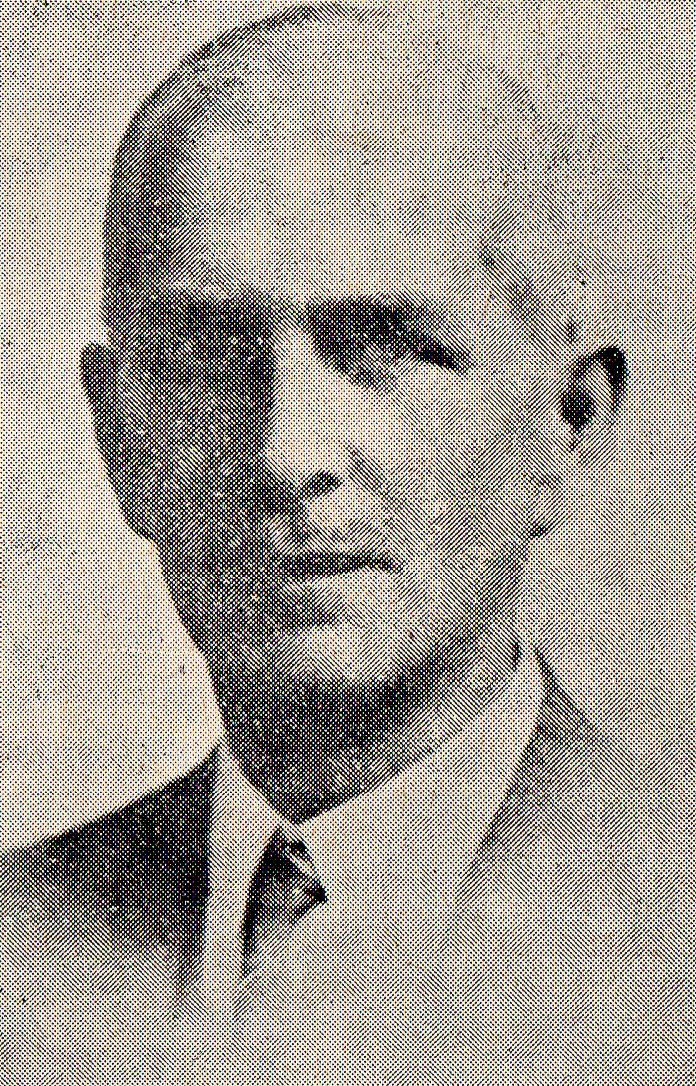|
Ludwik Fleck
Ludwik Fleck (, ; 11 July 1896 – 5 June 1961) was a Polish, Jewish, and Israeli physician and biologist who did important work in epidemic typhus in Lwów, Poland, with Rudolf Weigl and in the 1930s developed the concepts of "''Denkstil''" ("thought style") and "''Thought collective, Denkkollektiv''" ("thought collective"). Fleck's concept of "thought collective" is important in the philosophy of science and in logology (sociology), logology (the "sociology of science, science of science"), helping explain how scientific ideas change over time, much as in Thomas Kuhn's later notion of "paradigm shift" (on Fleck's possible influence on Kuhn, see Jarnicki and Greif) and in Michel Foucault's concept of "episteme". Fleck's account of the development of facts at the intersection of active elements of a thought collective and the passive resistances of nature provides a way of considering the culture of modern science as evolutionary and evidence-oriented. Life Ludwik Fleck was b ... [...More Info...] [...Related Items...] OR: [Wikipedia] [Google] [Baidu] |
Lemberg
Lviv ( or ; ; ; see #Names and symbols, below for other names) is the largest city in western Ukraine, as well as the List of cities in Ukraine, fifth-largest city in Ukraine, with a population of It serves as the administrative centre of Lviv Oblast and Lviv Raion, and is one of the main Ukrainian culture, cultural centres of Ukraine. Lviv also hosts the administration of Lviv urban hromada. It was named after Leo I of Galicia, the eldest son of Daniel of Galicia, Daniel, King of Ruthenia. Lviv (then Lwów) emerged as the centre of the historical regions of Red Ruthenia and Galicia (Eastern Europe), Galicia in the 14th century, superseding Halych, Chełm, Belz, and Przemyśl. It was the capital of the Kingdom of Galicia–Volhynia from 1272 to 1349, when it went to King Casimir III the Great of Kingdom of Poland, Poland in a Galicia–Volhynia Wars, war of succession. In 1356, Casimir the Great granted it town rights. From 1434, it was the regional capital of the Ruthenian ... [...More Info...] [...Related Items...] OR: [Wikipedia] [Google] [Baidu] |
Rudolf Weigl
Rudolf Stefan Jan Weigl (2 September 1883 – 11 August 1957) was a Polish biologist, physician and inventor, known for creating the first effective vaccine against epidemic typhus. He was nominated for the Nobel Prize in Medicine each year between 1930 and 1934, and from 1936 to 1939. Weigl worked during the Holocaust to save the lives of countless Jews by developing the vaccine for typhus and providing shelter to protect those suffering under the Nazi Germans in occupied Poland. For his contributions, he was named a Righteous Among the Nations in 2003. Life Weigl was born in Prerau, which at the time was part of the Austro-Hungarian Empire, to Austrian parents, of Austro-Moravian descent. When he was a child, his father died in a bicycle accident. His mother, Elisabeth Kroesel, married a Polish secondary-school teacher, Józef Trojnar. Weigl was raised in Jasło, Poland. Although he was a native German speaker, when the family moved to Poland, he adopted the Polish language ... [...More Info...] [...Related Items...] OR: [Wikipedia] [Google] [Baidu] |
Episteme
In philosophy, (; ) is knowledge or understanding. The term ''epistemology'' (the branch of philosophy concerning knowledge) is derived from . History Plato Plato, following Xenophanes, contrasts with : common belief or opinion. The term is also distinguished from : a craft or applied practice. In the '' Protagoras'', Plato's Socrates notes that and are prerequisites for prudence (). Aristotle Aristotle distinguished between five virtues of thought: , , , , and , with translating as "craft" or "art" and as "knowledge". A full account of is given in '' Posterior Analytics'', where Aristotle argues that knowledge of necessary, rather than contingent, truths regarding causation is foundational for . To emphasize the necessity, he uses geometry. Notably, Aristotle uses the notion of cause () in a broader sense than contemporary thought. For example, understanding how geometrical axioms lead to a theorem about properties of triangles counts as understanding the ''c ... [...More Info...] [...Related Items...] OR: [Wikipedia] [Google] [Baidu] |
Paradigm Shift
A paradigm shift is a fundamental change in the basic concepts and experimental practices of a scientific discipline. It is a concept in the philosophy of science that was introduced and brought into the common lexicon by the American physicist and philosopher Thomas Kuhn. Even though Kuhn restricted the use of the term to the natural sciences, the concept of a paradigm shift has also been used in numerous non-scientific contexts to describe a profound change in a fundamental model or perception of events. Kuhn presented his notion of a paradigm shift in his influential book ''The Structure of Scientific Revolutions'' (1962). Kuhn contrasts paradigm shifts, which characterize a Scientific Revolution, to the activity of normal science, which he describes as scientific work done within a prevailing framework or paradigm. Paradigm shifts arise when the dominant paradigm under which normal science operates is rendered incompatible with new phenomena, facilitating the adoption of a ne ... [...More Info...] [...Related Items...] OR: [Wikipedia] [Google] [Baidu] |
Sociology Of Science
The sociology of scientific knowledge (SSK) is the study of science as a social activity, especially dealing with "the social conditions and effects of science, and with the social structures and processes of scientific activity." The sociology of scientific ignorance (SSI) is complementary to the sociology of scientific knowledge. For comparison, the sociology of knowledge studies the impact of human knowledge and the prevailing ideas on societies and relations between knowledge and the social context within which it arises. Sociologists of scientific knowledge study the development of a scientific field and attempt to identify points of contingency or interpretative flexibility where ambiguities are present. Such variations may be linked to a variety of political, historical, cultural or economic factors. Crucially, the field does not set out to promote relativism or to attack the scientific project; the objective of the researcher is to explain why one interpretatio ... [...More Info...] [...Related Items...] OR: [Wikipedia] [Google] [Baidu] |
Logology (sociology)
Logology is the study of all things related to science and its practitioners—philosophical, biological, psychological, societal, historical, political, institutional, financial. The term "logology" is back-formed from the suffix "-logy", as in "geology", "anthropology", etc., in the sense of the "study of science"., , English-language summary: pp. 741–43 note 3 The word "logology" provides grammatical variants not available with the earlier terms "science of science" and "sociology of science", such as "logologist", "logologize", "logological", and "logologically". The emerging field of metascience is a subfield of logology. Origins The early 20th century brought calls, initially from sociologists, for the creation of a new, empirically based science that would study the scientific enterprise itself. The early proposals were put forward with some hesitancy and tentativeness. The new meta-science would be given a variety of names, including "science of knowledge", "science ... [...More Info...] [...Related Items...] OR: [Wikipedia] [Google] [Baidu] |
Philosophy Of Science
Philosophy of science is the branch of philosophy concerned with the foundations, methods, and implications of science. Amongst its central questions are the difference between science and non-science, the reliability of scientific theories, and the ultimate purpose and meaning of science as a human endeavour. Philosophy of science focuses on metaphysical, epistemic and semantic aspects of scientific practice, and overlaps with metaphysics, ontology, logic, and epistemology, for example, when it explores the relationship between science and the concept of truth. Philosophy of science is both a theoretical and empirical discipline, relying on philosophical theorising as well as meta-studies of scientific practice. Ethical issues such as bioethics and scientific misconduct are often considered ethics or science studies rather than the philosophy of science. Many of the central problems concerned with the philosophy of science lack contemporary consensus, including whether ... [...More Info...] [...Related Items...] OR: [Wikipedia] [Google] [Baidu] |
Thought Collective
A thought collective, a term originated in German as "''Denkkollektiv''" by the Polish and Israeli physician Ludwik Fleck, is a community of researchers who interact collectively towards the production or elaboration of knowledge using a shared framework of cultural customs and knowledge acquisition. In , Fleck identified the scientific production of knowledge as primarily a social process that hinges upon prior discoveries and practices in a way that constrains and preconditions new ideas and concepts. He termed this shared collection of preexisting knowledge a "''Denkstil''" or thought style and formulated a comparative epistemology of science using these two ideas. ''Genesis and Development of a Scientific Fact'' Ludwik Fleck Ludwik Fleck (, ; 11 July 1896 – 5 June 1961) was a Polish, Jewish, and Israeli physician and biologist who did important work in epidemic typhus in Lwów, Poland, with Rudolf Weigl and in the 1930s developed the concepts of "''Denkstil''" ("t ..., ... [...More Info...] [...Related Items...] OR: [Wikipedia] [Google] [Baidu] |
Lwów
Lviv ( or ; ; ; see #Names and symbols, below for other names) is the largest city in western Ukraine, as well as the List of cities in Ukraine, fifth-largest city in Ukraine, with a population of It serves as the administrative centre of Lviv Oblast and Lviv Raion, and is one of the main Ukrainian culture, cultural centres of Ukraine. Lviv also hosts the administration of Lviv urban hromada. It was named after Leo I of Galicia, the eldest son of Daniel of Galicia, Daniel, King of Ruthenia. Lviv (then Lwów) emerged as the centre of the historical regions of Red Ruthenia and Galicia (Eastern Europe), Galicia in the 14th century, superseding Halych, Chełm, Belz, and Przemyśl. It was the capital of the Kingdom of Galicia–Volhynia from 1272 to 1349, when it went to King Casimir III the Great of Kingdom of Poland, Poland in a Galicia–Volhynia Wars, war of succession. In 1356, Casimir the Great granted it town rights. From 1434, it was the regional capital of the Ruthenian ... [...More Info...] [...Related Items...] OR: [Wikipedia] [Google] [Baidu] |
Epidemic Typhus
Epidemic typhus, also known as louse-borne typhus, is a form of typhus so named because the disease often causes epidemics following wars and natural disasters where civil life is disrupted. Epidemic typhus is spread to people through contact with infected body lice, in contrast to endemic typhus which is usually transmitted by fleas. Though typhus has been responsible for millions of deaths throughout history, it is still considered a rare disease that occurs mainly in populations that suffer unhygienic extreme overcrowding. Typhus is most rare in industrialized countries. It occurs primarily in the colder, mountainous regions of central and east Africa, as well as Central and South America. The causative organism is '' Rickettsia prowazekii'', transmitted by the human body louse (''Pediculus humanus corporis''). Untreated typhus cases have a fatality rate of approximately 40%. Epidemic typhus should not be confused with murine typhus, which is more endemic to the United Sta ... [...More Info...] [...Related Items...] OR: [Wikipedia] [Google] [Baidu] |
Michel Foucault
Paul-Michel Foucault ( , ; ; 15 October 192625 June 1984) was a French History of ideas, historian of ideas and Philosophy, philosopher who was also an author, Literary criticism, literary critic, Activism, political activist, and teacher. Foucault's theories primarily addressed the relationships between Power (social and political), power versus knowledge and liberty, and he analyzed how they are used as a form of social control through multiple institutions. Though often cited as a Structuralism, structuralist and Postmodernism, postmodernist, Foucault rejected these labels and sought to critique authority without limits on himself. His thought has influenced academics within a large number of contrasting areas of study, with this especially including those working in anthropology, communication studies, criminology, cultural studies, feminism, literary theory, psychology, and sociology. His efforts against homophobia and racial prejudice as well as against other Ideology, id ... [...More Info...] [...Related Items...] OR: [Wikipedia] [Google] [Baidu] |









